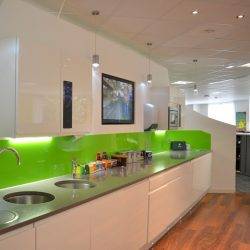June 5, 2017
Taking action on climate change will boost economic growth, claims report 0
 Integrating measures to tackle climate change into regular economic policy will have a positive impact on economic growth over the medium and long term, according to a new OECD report prepared in the context of the German Presidency of the G20. Investing in Climate, Investing in Growth claims that bringing together the growth and climate agendas, rather than treating climate as a separate issue, could add 1 percent to average economic output in G20 countries by 2021 and lift 2050 output by up to 2.8 percent. If the economic benefits of avoiding climate change impacts such as coastal flooding or storm damage are factored in, the net increase to 2050 GDP would be nearly 5 percent.
Integrating measures to tackle climate change into regular economic policy will have a positive impact on economic growth over the medium and long term, according to a new OECD report prepared in the context of the German Presidency of the G20. Investing in Climate, Investing in Growth claims that bringing together the growth and climate agendas, rather than treating climate as a separate issue, could add 1 percent to average economic output in G20 countries by 2021 and lift 2050 output by up to 2.8 percent. If the economic benefits of avoiding climate change impacts such as coastal flooding or storm damage are factored in, the net increase to 2050 GDP would be nearly 5 percent.











 A new guide for facilities management professionals working with clients on BIM construction projects has been issued by the BIFM (British Institute of Facilities Management). Employer’s Information Requirements is a practical 47-page document to support clients using BIM (Building Information Modelling) to advise clients on how to specify their exact requirements for the design and construction phase of a built asset through to its full life-time operation. The purpose of the EIR is to support both FM professionals and clients by providing a template which can be edited and amended by the client or facilities manager to meet individual requirements for the project. Its guidance follows the publication of BIFM’s Operational Readiness Guide For Facilities Managers published in April 2016. Since April 2016, construction projects commissioned by Central Government have been required to use BIM for their procurement and delivery.
A new guide for facilities management professionals working with clients on BIM construction projects has been issued by the BIFM (British Institute of Facilities Management). Employer’s Information Requirements is a practical 47-page document to support clients using BIM (Building Information Modelling) to advise clients on how to specify their exact requirements for the design and construction phase of a built asset through to its full life-time operation. The purpose of the EIR is to support both FM professionals and clients by providing a template which can be edited and amended by the client or facilities manager to meet individual requirements for the project. Its guidance follows the publication of BIFM’s Operational Readiness Guide For Facilities Managers published in April 2016. Since April 2016, construction projects commissioned by Central Government have been required to use BIM for their procurement and delivery.

















April 3, 2017
The point everybody is missing about the backtrack on remote working by IBM 0
by Andrew Mawson • Comment, Facilities management, Flexible working
(more…)